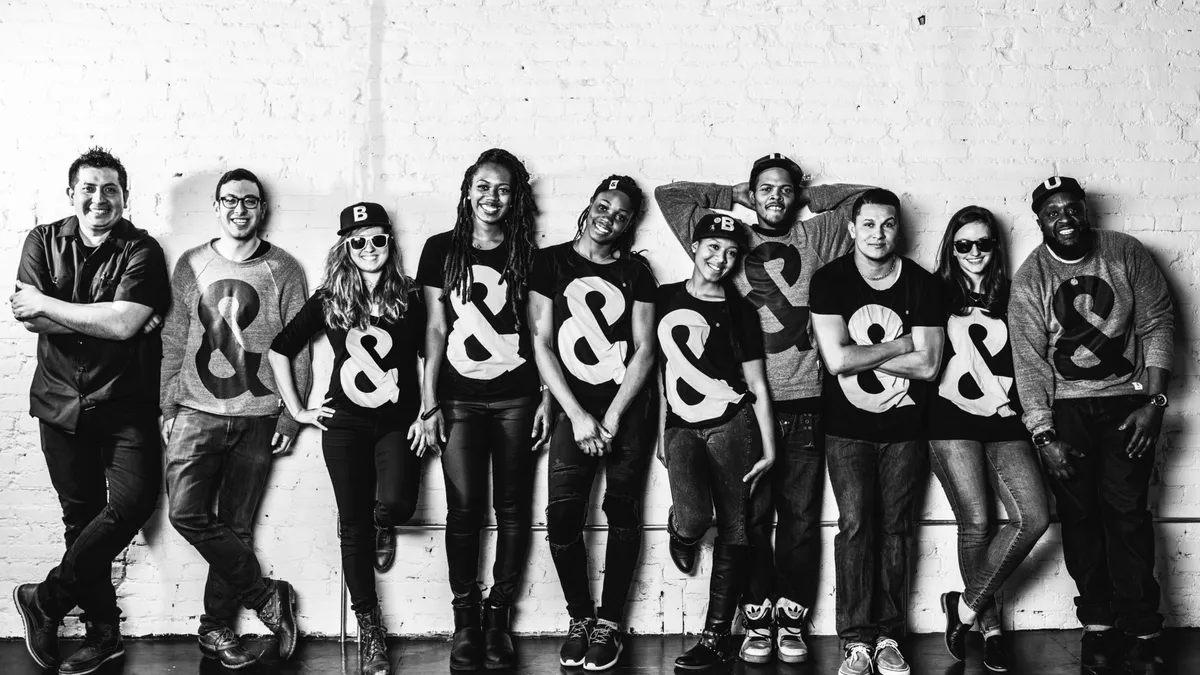Dive Brief:
- Washington, D.C.-based &pizza announced Wednesday it will implement a $15 minimum wage for its employees across all locations by 2022. The federal minimum wage of $7.25 an hour has been in place since 2009.
- The chain has advocated for higher wages since its launch in 2012, joining the Business for a Fair Minimum Wage alliance and working with representatives on the Raise the Wage Act.
- Higher wages is hardly &pizza's only employee-focused initiative. The chain offers employees paid time off to get involved in community activism, has provided raises and extra benefits during the pandemic, gives discounted Lyft rides for employees working late-night shifts and more.
Dive Insight:
Raising the minimum wage has long been a priority for the company. CEO and co-founder Michael Lastoria was talking about a $15 wage in 2017, telling Business Insider that it will have "a massive impact on society."
"We must make the minimum wage in this country a living wage, and if Congress can't figure that out quickly, &pizza will show them how. Our goal is simple: to unite the working class around this issue," Lastoria said in a statement.
The restaurant industry has grappled with pressure to raise wages for nearly a decade. The Fight for $15 labor movement was created in 2012 when 200 quick-service workers went on strike to demand higher wages and union rights. That movement has since grown and, arguably, has succeeded in getting some chains — like McDonald's — to move the needle on their minimum wages. Chains like Shake Shack have also voluntarily raised their wages in the past few years.
Starbucks also just announced its baristas will receive at least a 10% wage increase starting in mid-December.
But there has also been significant pushback in the restaurant industry. As the country's second largest private sector employer, higher wages will no doubt have a significant impact on companies' bottom lines. Seattle-based Restaurants Unlimited filed for Chapter 11 bankruptcy protection, claiming its profitability was "significantly impacted by progressive wage laws along the Pacific coast." According to a recent survey from Harri, nearly three-fourths of restaurants said they would raise menu prices to keep up with higher wages, while 64% said they would cut hours, and 43% would eliminate some job positions.
There have also been discussions about whether or not a higher minimum wage will lead to more automation, a trend that is certainly growing in the space.
The pendulum on this issue is swinging. About 20 states voted to increase their minimum wage rates in 2018, for example. Just this month, Florida voted to increase its wages during the next six years until it gets to $15 — the eighth state to approve that $15 level. Currently, no states are yet at that $15-an-hour level, but Washington, D.C., is. Perhaps seeing the writing on the wall, McDonald's gave up its battle against a $15 minimum wage last year.
That writing could become more clear in the next few months. President-elect Joe Biden has also advocated for a $15 minimum wage as part of his campaign platform. Restaurant chains are therefore wise to work incrementally toward that level, and many are doing just that already. Despite any hurdles Biden might face getting to that $15 level while in office, as more cities and states (and companies) move toward higher wages, &pizza's announcement can be seen as largely proactive.













